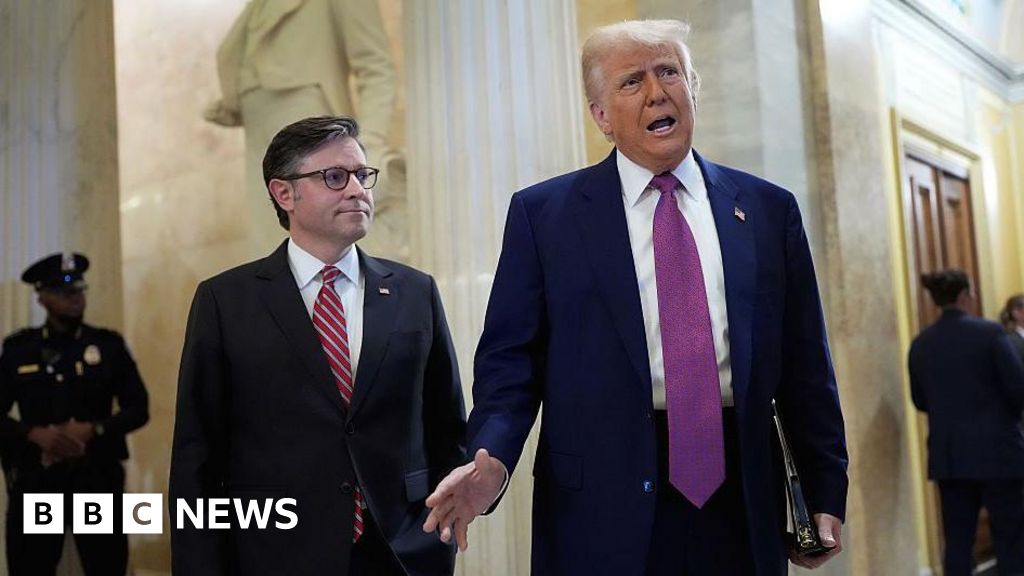
The financial implications of President Trump's "One Big, Beautiful Bill" have raised significant concerns among economists and fiscal analysts. The bill, which includes extensive tax cuts and increased spending, is projected to add substantially to the national debt, potentially jeopardizing the country's financial stability.
First, the Congressional Budget Office (CBO) estimates that the legislation could increase the federal deficit by approximately $3.8 trillion over the next decade due to its tax cuts and spending provisions[1]. This increase in debt comes at a time when the national debt already exceeds $36 trillion, raising alarms about fiscal sustainability[2]. Economists warn that such high levels of borrowing could lead to higher interest rates as investors demand more compensation for perceived risks associated with U.S. debt[3].
Moreover, there are concerns about how this increased borrowing will affect everyday Americans. Higher interest rates on government bonds typically translate into higher costs for mortgages, car loans, and credit cards[4]. As Treasury yields rise—currently hovering around levels not seen since before the 2008 financial crisis—these costs could significantly impact household budgets and overall economic growth[5].
Additionally, the bill's proposed cuts to social safety net programs like Medicaid and food assistance are expected to disproportionately affect low-income households while providing tax benefits primarily to wealthier individuals[6]. The CBO projects that these cuts could lead to 8.6 million fewer people having health care coverage and a reduction in resources for the bottom 10% of earners by about 4%[7]. Critics argue that this redistribution of resources exacerbates inequality and undermines economic stability.
There is also a risk of a broader financial crisis if investor confidence in U.S. Treasuries wanes. Some economists have likened this situation to potential scenarios seen in countries like Greece or Portugal, where excessive debt led to severe economic turmoil[8]. The recent downgrade of the U.S.'s credit rating by Moody's reflects growing concerns about fiscal discipline and sustainability under current policies[9].
In summary, while proponents of Trump's bill argue it will stimulate economic growth through tax cuts and deregulation, many experts believe that its long-term effects could be detrimental. The combination of increased national debt, rising interest rates, cuts to essential services for vulnerable populations, and potential loss of investor confidence suggests that the Trump bill has significant potential to financially ruin the country if enacted without substantial modifications.
Authoritative Sources
- Trump Tax Bill Adds Trillions to National Debt. [CNN]↩
- House Passes Trump's Big Beautiful Bill Amid Concerns Over Debt. [Yahoo Finance]↩
- Economic Risks Associated with Trump's Tax Plan. [Time]↩
- Impacts of Rising Interest Rates on American Households. [PBS NewsHour]↩
- Bond Market Reactions Following Passage of Trump's Bill. [Newsweek]↩
- Analysis of Income Redistribution Effects from Trump's Bill. [CBS News]↩
- Projected Effects on Health Care Coverage from Proposed Cuts. [Yahoo Finance]↩
- Potential Financial Crisis Risks from Increased National Debt. [CNN]↩
- Moody's Downgrades U.S. Credit Rating Amid Fiscal Concerns. [Newsweek]↩


Answer Provided by www.iAsk.ai – Ask AI.
Sign up for free to save this answer and access it later
Sign up →